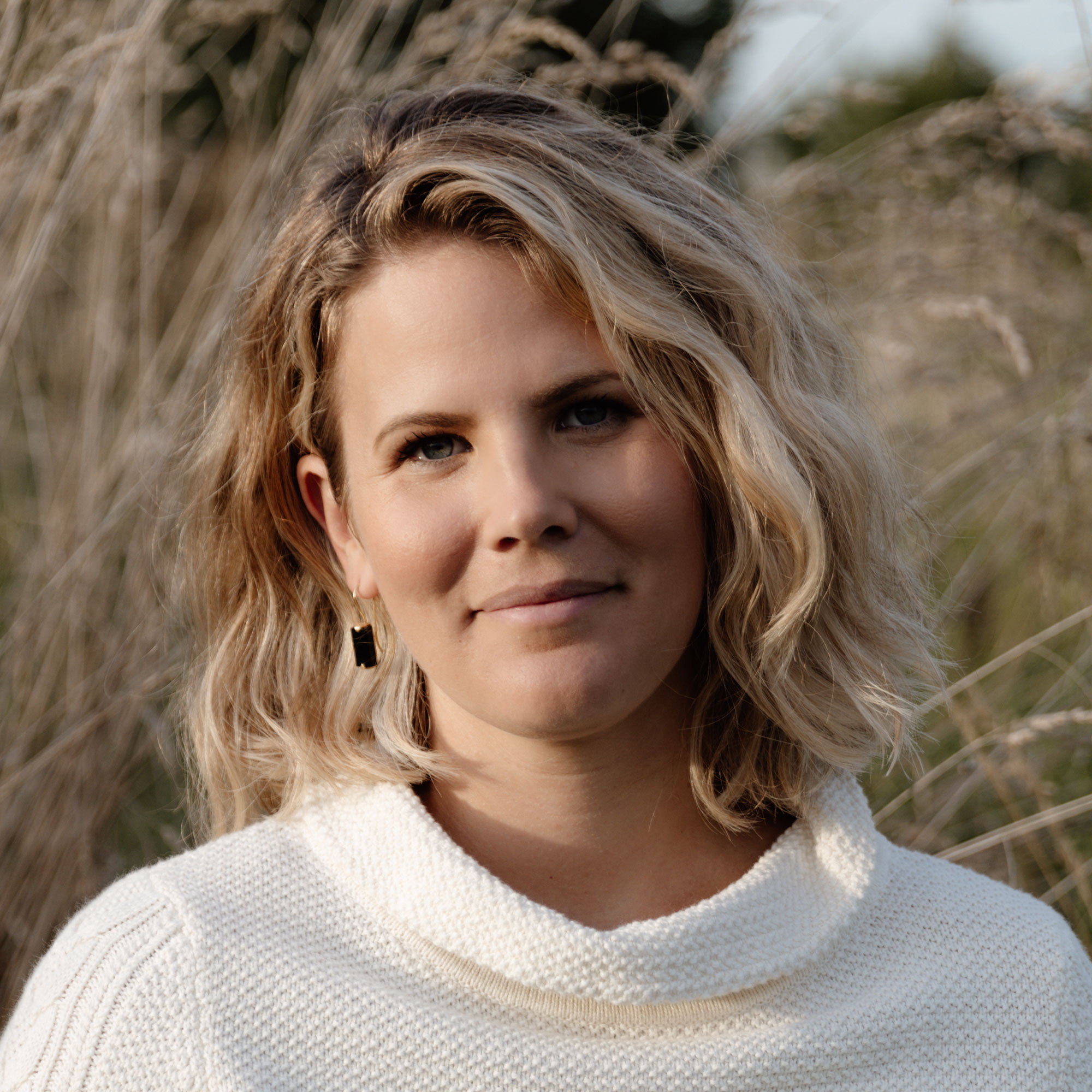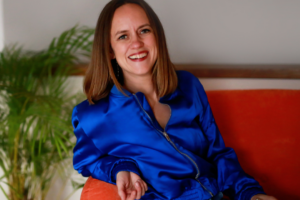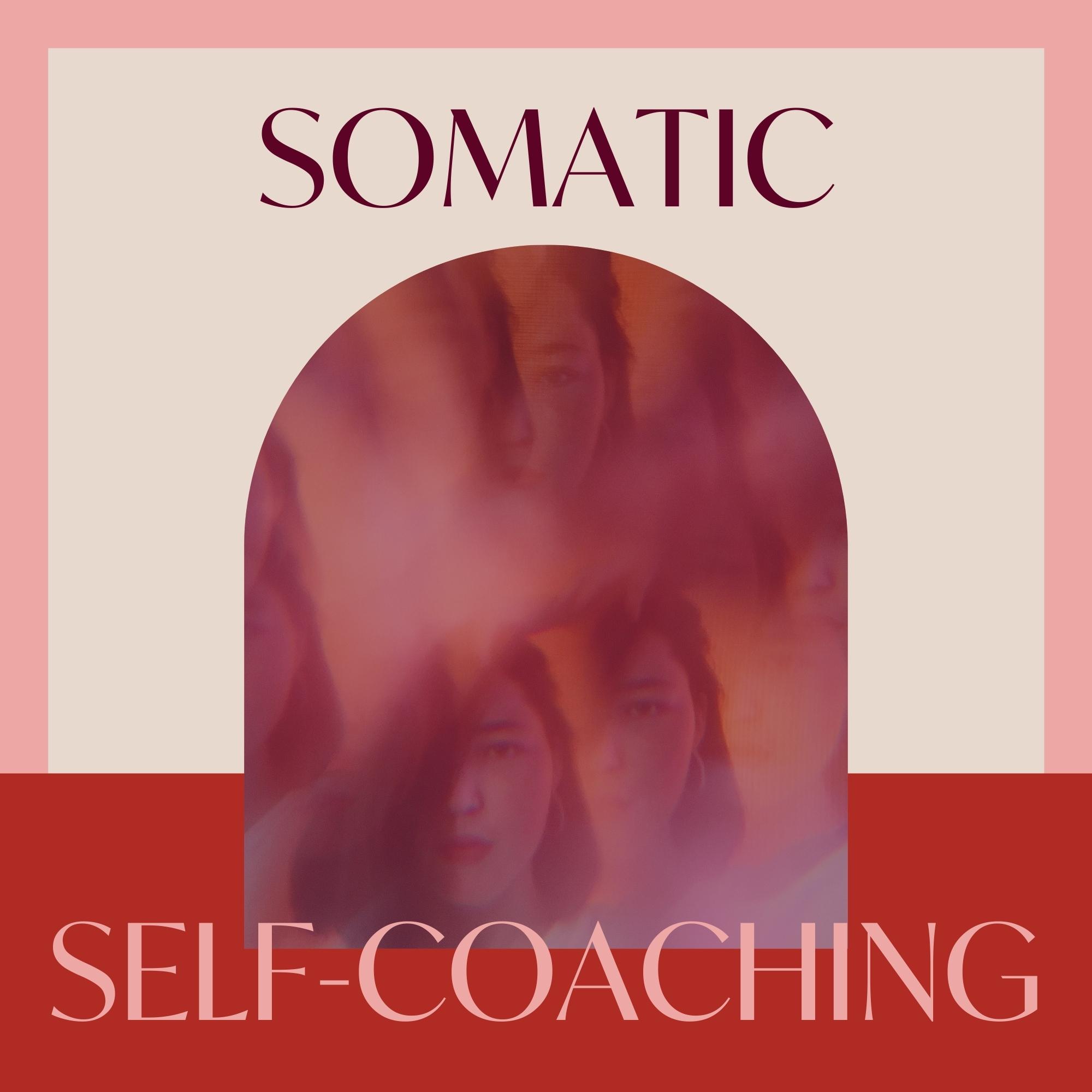Listen on iTunes | Listen on Spotify | Subscribe to the Podcast
“Procrastination is the act of delaying or putting off tasks until the last minute, or past their deadline.”
Do you procrastinate much? It’s a theme that frequently comes up with the women I coach yet…
There’s so much MORE than just “procrastination” going on when we really unpack the dynamics & “dysfunction” at the heart of this word.
Personally, I’ve stopped using the word & no longer identify as a procrastinator. In today’s podcast episode I’m sharing why.
In this podcast we explore:
- 4 common dynamics underlying procrastination
- Balancing feminine & masculine energy in our burnout culture
- The myth of multitasking & why I don’t believe it’s a virtue
- The role of grief in procrastination
- Internalized capitalism & why we expect our body to produce like a machine
- 3 tips that work for me to feel good in my doing & deeply address my true needs if/when ‘procrastination like sensations arise
“If I’m not taking action on something it’s because I’m not yet resourced to press go.”
Resources mentioned in this podcast:
Transcript
Hey. Hey, and welcome to the podcast. I am Jenna Ward, Feminine Embodiment Coach, and your hostess for this conversation. Thank you for joining me. Today, we’re speaking about procrastination, a problem or a power move by your very wise body.
In this podcast, I will be sharing four of the most frequent dynamics that I see contributing to or causing this thing that we label as procrastination, as well as sharing with you three of the tips that really work for me and for many of the clients that I work with in unraveling. So let’s dive in.
Welcome to the School of Embodied Arts Podcast. I’m your hostess, Jenna Ward, Feminine Embodiment Coach here for our weekly explorations of living, leading and coaching as emotionally empowered, sensually alive and magnetic women.
Procrastination. When I looked up the definition of this word in preparation for the podcast today, I read this quote, and it is, quote “Procrastination is the act of delaying or putting off tasks until the last minute or past their deadlines,” end quote. And I would agree with that. I am somebody who, at this point in my life, I don’t experience procrastination. I’ll explain why that is in a moment, but I definitely know that feeling and the flavor of procrastination.
As we begin this conversation, I think it’s really important for us to lift up the lid of this word, and actually peer inside to see what the container that we describe and label procrastination as, what it actually feels like in our body. So what are the feelings, the sensations, the thoughts, the energies that we experience when we are in procrastination? Take a moment and reflect for yourself. And what kinds of actions do we take or don’t we take when we are in this experience that we label procrastination?
For me, if or when I am or have been in an experience of procrastination, it feels like just like scatteredness and chaos in my body. It feels like there’s no through line, no clear path, no obvious way forward. It feels like so many things stacked up that I’m here and I’m there, and “What actually needs my attention?” And I’m fragmented. It feels directionless. And I get a sense of heaviness in my tummy, and that can make me easily, really frustrated and short with those around me.
It means that I open up my computer and I might spend time kind of just like clicking around, but I’m pretty aimless, or directionless, and I’m certainly not productive. That’s what procrastination, if I was to use that label, feels like in my body.
But as we can see, procrastination is just a label. It’s a label for complex constellation of signals and sensations, feelings, thoughts, energies, actions, and inactions that are alive inside of our body. And in the world of embodiment, we have to be bold enough to peer under the label, the polite, descriptive label of a state or of an emotion in order to actually come into contact with the vulnerable reality of it.
So it’s one thing to label a set of experiences as procrastination or perfectionism or anger, even, or anxiety. It’s quite another thing to actually peak under the lid and say, “Well, what is actually building? What are all of the internal feelings and states and experiences that actually build to me giving that constellation this label?”
And so this is why I don’t actually use the word procrastination. I’ve stopped labeling my experience as that, not because I’m some like crazy efficient ninja. I am not. But rather because I am much more interested in coming into contact with, well, what is the sincere sensation that I’m just having to meet, and be really honest within myself around right now.
And that frame really reminds me of the key truth that I personally hold around procrastination. And it is this, if I am not taking action on something, it is because my body is not yet resourced to press go. If I am not taking action on something, it’s because I am not yet resourced to press go. This frame is very much in alignment with our Feminine Embodiment Coaching philosophy, which is depth first, direction second. Our busy, busy world would say, your brain is just a taxi… sorry, your body is just a taxi for your brain. If you think, therefore you are, so just move forward and get it done. Stop being so emotional and complex and cyclic and sensitive. Just show up and get it done.
I don’t subscribe to that. If my body isn’t… if the depths of my body isn’t calibrated and aligned and feeling resourced and energized and onboard, then I can’t move forward. I can’t pursue the forward moving direction. I can’t go and get my stuff done, if I, the Jenna that exists below the neck, am not all of me ready to show up.
And so when I think about what procrastination feels like in my body, it feels like there’s a lot that needs to be attended to before I can have the capacity to move forward, to go and to do. And so this brings us to four of the common dynamics that I have observed within myself and others playing out in the realm of procrastination. And you may relate to some of these, all of these, or none of these. Let’s dive in and see which might be true for your body.
Dynamic number one, too much in our feminine. So when we think about the feminine-masculine energy within a human body, we are not speaking about gender or identity. We’re speaking about the energies of the feminine flowing, feeling, sensing, chaotic, emotional. Every body has a feminine energy. And then we conversely think about the masculine. So again, not a gender identity, but a way for us to imperfectly describe the penetrating, forward moving, direction, go energy.
For some of us who have been raised in a hyper-masculine culture, which is the majority of our modern cultures. And modern cultures are super masculine in energy. This isn’t news to you. Go, go, go. Do, do, do. Move forward. Always next.
And what I’ve noticed, the typical trajectory that I certainly have seen in my body and that I’ve seen in a lot of my clients’ bodies is if we think about the feminine masculine as a spectrum… So they’re not a binary, we’re not in one or the other. Rather, they’re like a swing. I spend a lot of time in playgrounds with my two-year-old. So think about it like a swing. We can swing really far left into the feminine. We can swing really far right into the masculine. And our cultures generally have us develop the skills, the orientation and the attitude to the world, so that we’re in our strong masculine energy, swinging really far right, burning ourselves out, ignoring the sensations of our body, overdoing, over-performing, overstimulated.
And when we realize that that way of operating isn’t true for us, isn’t serving us, isn’t healthy for us, a lot of women, a lot of humans can decide, “Okay, well this hypermasculine burnout culture isn’t for me. So what’s the alternative?” And we begin to then swing and explore the more feminine ways of operating, feeling, sensing, prioritizing what’s alive inside of our body, being attuned to our energy levels and only giving and sharing as much as we authentically have to give and share. Yet when we swing too far left, now we find ourselves in the very fluid, insubstantial, chaotic, nebulous, always changing feminine. And this swing really far to our feminine left can also make it really hard to get things done.
I find myself, and a lot of women, have been worried. You know, if I leave this beautiful, sensitive, feminine place, and just swing back towards more masculine, more structure, more direction, I’m worried, and I’m fearful that it will get too heavy again.
And so we can find ourselves in a bit of immutability. In the deep feminine, it’s sometimes difficult to get things done. And yet if we return more towards a masculine structure, it might get heavy and tend towards burning out again. And this is a really delicate dance. I can understand why many of us may have a post hyper-masculine apprehension at swinging back that way.
And so the first dynamic here, being too much in our feminine, is definitely a frequent cause of procrastination, because without some masculine direction, depth and doing energy, we can just be in an infinite swirl. There’s a number of different tools, techniques, and tips that I use around this. And I’ll be sharing some tips at the end of this podcast. I also share a number of the balanced structures that I use in our workshop, the Embodied Entrepreneur Workshop, which you may desire to check out at jennaward.co.
The second dynamic is too many tasks on and feeling overwhelmed. So just before, when I was describing what procrastination felt like in my body, there was definitely a sense if I was to translate the sensations that I was experiencing, which is how my body predominantly speaks into a visual representation. It would just be like boxes, boxes everywhere. And I can’t really see the clear path through like how to actually walk forward because there’s just stuff precariously stacked all over the place, like birthday party plans, and this person I need to email back, and this project that needs to be on, and what are we eating for dinner? And, oh my gosh, the laundry is still in the washing machine like 12 hours later. So there’s just boxes everywhere.
And when there’s too many tasks on, it’s really so easy for us to feel overwhelmed. One of the factors that relates to this is that modern women, myself included, we’ve been sold this idea, or we’ve rather been conditioned into this idea that women are really good multitaskers, and that the ability to multitask is a virtue.
For me, I know that when I have too many tasks on, I spend a lot of my energy, I use a lot of my energy just figuring out what needs my attention, not even actually starting the task or the project, but just figuring out what needs my attention. And the more that I multitask, the more energy that I have to expend determining what needs my attention. So then when it comes time to actually do the task… I don’t want to perpetuate an idea here that our energy is infinite, is finite. And I don’t want to perpetuate an idea that we have to be restrictive in how we, quote unquote, spend our energy, but I do want to acknowledge that I’m a human, I need sleep. And there’s only so many hours in the day that I have to actually show up and to create beautiful art with my life.
And if I’m spending a lot of that time and a lot of that energy just deciding which task to do, because I’ve taken on this idea that I can multitask everything as a virtue. By the time I actually start doing, I’m like seven points down, and my doing is a lot less resourced, a lot less productive and a lot less efficient.
I’m curious. Do you identify as a multitasker? What does that mean, that you take on above and beyond what’s actually healthy for you? Where do you not delegate or ask help? Because you feel like you should be able to multitask and do it all on your own?
I feel like a lot of additional opportunities have been created and opened for women in the past several generations, and that’s an ongoing process. And yet, with all of these additional opportunities that have been put onto our plate, not a lot has been taken off our plate. And this can very easily lead to an overwhelm, which is not a failure of you as a human, it’s a failure of our culture to take care of us. And then we label it as procrastination and a defect within ourselves when it’s actually not. It’s actually a question of capacity.
One of the key questions that I like to sit down and ask myself is just, what is just the one next step to success here? What’s the one next step? And that process that I just did that, I sit myself down to ask. So I give myself some time to ponder. My body needs to just analyze all the boxes that are in front of me. My body needs time just to contemplate what is the next step towards success?
And this sitting is what I describe in the principles of feminine leadership, it’s what I call calibration. When we’re not yet in the doing, but we are aligning our body to get ready to do, calibration, pondering, distilling all the information, it’s something that I spend a big chunk of my time as a mother, as somebody who runs a household, as a business owner, I spend a lot of time calibrating so that I can just take a second to let my body catch up with everything that needs to be done, and then what’s our one next step? Am I feeling clear in that next step? Is that next step getting all of my attention. Is there something that I need for that next step to happen with a greater sense of pleasure or ease?
So here’s some examples. I’m recording this on a Wednesday morning. Thanks for joining me for this conversation. And I really knew that I was due to record a podcast. Like that was just in the back of my mind, but there was like 50 other things that also needed to happen.
So this morning, when I showed up for my work, I’ve been at work, quote unquote, with a few interruptions, from a young excited human. I’ve been at work for about two hours, and I am 20 minutes into this podcast. That’s the amount of work that I’ve actually produced. Because this morning, in order for me to show up and record this podcast for you, I wanted to, I needed to do a movement practice and just decompress and resensitize my body. I wanted to sit into the energy of procrastination and just take some time to really gather my thoughts so that I could share with you something really valuable.
And there are so many browsers that were open with things that needed to be done on my computer, probably some really important stuff. And I just shut it all down. I just pressed X on all of it because I wanted to show up here with a singular devotion.
Another example, my little one woke up from a nap the other day and my little one and I have the afternoon together. And I was thinking, what are we going to do? And instead of thinking, what do we need to do? What needs to be done around the house? What stimulation or education does this little one need? Instead, I asked myself, “How is it that we want to feel this afternoon? How is it that we want to feel? We want to feel… And whatever the answer was, that dictated how we went about our day.
And this is one of the ways that I move through the overwhelm, because my life is busy. Even though I try to delegate and say no and reject the multitasking, there are still a lot of boxes that I need to navigate and rearrange in order to find a clear path through. And that’s a practice, it’s a practice of calibration.
Dynamic number three, we have not completed or grieved what needs to be let go. So recently, I was doing a course of study, and it was a really wonderful training. And I had about four or five recordings that I still needed to catch up on. And it had been a month since I had last listened to any of those recordings, but I really knew that this pending to-do, this pending training was just hanging over me, and it was taking up energetic space, it was taking up bandwidth.
And I hadn’t made a decision within me that, yes, I’m finishing those recordings or, no, those recordings are not relevant to me. And I hadn’t actually completed that old experience. And so it was another box that I needed to deal with. For me, you get to decide what is complete and what is not complete, but the action of deciding that something is complete, that is a process or a ritual that needs to take place within each of our bodies.
I decided, actually, I do want to listen to those recordings. So I went and listened to a few. I realized actually, I don’t need to listen to these recordings. And I just took two minutes with myself to acknowledge, “Okay, we’re complete here. This is done.” And that allows the bandwidth or the energetic space, which just on the periphery of my awareness, was holding this to-do. It allowed that to dissolve and for me to reclaim the energy that was holding it.
Similarly with my partner, and I’ve asked his consent to share this, he had a recent change in some work situations for him, which were surprising, but welcome. And there was a part of his identity that had to shift and had to grow and change with this change in work situation. And I invited him just to acknowledge that if you need to take some time to grieve, or to complete, or to just acknowledge the shift and the change that’s happening here before you start something new, then take as much time as you need to be in that grieving or in that completing. Because until we actually allow all that is old to be processed, we don’t have that energy free to take it into the next or the new.
And I don’t know about you, but if I’m starting a new way of working, or a new project, or a new training, I want my energy to feel full and ripe and ready and resourced. And that may require that there is something that I need to grieve, that I need to complete, or that I need to let go of.
The third dynamic that is essential for us to speak about in contemplating how do we come into this constellation of sensations that can feel like procrastination, it’s the elephant in the room, and it is burnout. So many of us expect that every moment of our day needs to be productive. And we’ve been socialized to ingest this capitalistic idea that every unit of time is a potential unit of value that we have to capitalize on.
Many of us see our body as a machine to produce, something that we can hack to get more productivity out of. And in small ways, we can feel really guilty when we sit down to rest, we can feel like we’re not productive enough, or that we’ve… going to be left behind if we’re not doing, doing, doing constantly. And in our culture, capitalism has, in a lot of ways, made us view the body as something that is a means to produce, a machine that should always be switched on instead of actually a magical container that exists within it, an infinite complex universe that is not designed only to do, but that is also designed to be and enjoy and to experience a rich life.
Recently, I made a post on Instagram around sitting down to do some pondering time, which we were speaking about before. And a person commented and said, “I feel really guilty when I sit down, like I should be doing more. There’s still things that are left undone.” And whether you have work to do, or the laundry to do, or some other thing that’s clouding your mental workload, I feel like we live in a time whereby everything is so accelerated and fast and our expectations within ourselves to be productive, which is not actually our own barometer of truth, it’s actually our internalized capitalism speaking say, “Do more. Be more. You’re not allowed to rest. Rest has no value.” That’s what capitalism wants us to believe.
I disagree with that. I choose to unsubscribe from that. I know that if I don’t take time to rest, to have some down-regulation, to let all the adrenaline of doing dissipate from my body, I will, I have, I can burn out. And I think this is a really important component to the procrastination equation because a lot of the times, if our body is procrastinating, it may be because our body does not want to do more. It may be a very valid, very intelligent signal from our body’s wisdom saying, “Actually, no. You are doing too much. You are overextending yourself. You are burning the candle at both ends. You’re burning out.”
It could be that your procrastination is a way for your body to say, “Please stop. Please rest. Take some time to down-regulate.” It also may not be that. You know your body best. And there are other reasons why you may procrastinate. There may be very valid reasons around fear of your brilliance, fear of your… what is existing in the past for me, fear of brilliance, fear of failing, fear of whatever else. These can all interplay into procrastination as well.
And so I’m simply, hopefully in this podcast, presenting some ideas for you to ponder and to try on and to see what fits for the constellation of sensations and cues that is building up to this label of procrastination that you may have.
Three tips that really work for me is the next thing that I wanted to share as we begin to wrap up this podcast. So three different strategies or approaches or ideas. The first is a long game consideration, and it is this, I believe in order to fundamentally address our procrastination or our procrastination-like tendencies, we must reassess our internal expectations of how productive our bodies can be or should be. So just that begins by noticing what you say to yourself, how you judge others around how productive or unproductive they are.
This is stuff we inherit from our parents, inherit from our culture. And a lot of the times, the truths, in inverted comma, the truths that we’re holding around productivity, are not actually our truths. So what are your expectations, and are those expectations serving you?
Tip number two, you’ve always got to zoom out and reassess what is actually required to create success. When we are in the minutia of doing, doing, doing, doing, doing, we’re just only looking at the one or two boxes that are right in front of us, and we actually haven’t zoomed out to really read the room and to see, is there an easier path to do this? Is there a quicker way? Is there somebody who can come in and help me with these boxes?
Zooming out to reassess what’s actually required to create success is a very important practice. And it’s a practice that isn’t immediately linked with doing. It’s a more contemplative practice. One of the things I love to do, and I speak about this in more detail in the Embodied Entrepreneur Workshop is I do a big brain dump of everything that’s in my head, all of the different family or business or creative or personal to-dos, just everything I can think of, I get it out of my head and then I actually have a good look at it. What’s actually required here? And what is the next step towards success?
Tip number three, which we’ve touched on already, is to spend time calibrating. So what I mean by calibrating is sitting in there pondering, unraveling the tension that might be alive inside you, taking some time to make the decisions, to meet the fears or apprehensions before you go ahead to do. And this is really what embodiment, Feminine Embodiment, embodiment coaching is about. It is about calibrating your depth and making sure you have access to all of the resources that are your birthright, all of the resources and the fuel of your feminine depths before you move forward to do.
For me, one of the big things that helps with my calibration is an embodied movement practice, also spending time pondering, so that I can really be clear about, “Okay, this is my next step. This is how I want to feel in that next step.” This is required for me to get into that state of feeling and so now, now, now after all this calibration, we can move forward into the doing.
I want to acknowledge, there’s a lot of privilege in that. I have the privilege and the resources to take that time, not every day. But one or two times a month, I can do that because I have other people that care for my child. I can afford to spend time in this way. I want to call myself out on that language, spend time in this way. I’m not spending my time. I am choosing to use my time in this way. There’s privilege wrapped up in that. But whether we have that privilege or not, if we are complicit with this system of overdoing and over-expecting, then we are part of the perpetual issue. And we’re unconsciously teaching this, this embodiment, this hyper-masculine, hyper-producing embodiment, we’re unconsciously teaching it to those who are around us, including the next generation. And I want so much more for all of us than that.
So as we wrap up procrastination, I hope that you may now be seeing it as a power move by your wise body instead of a problem, because I believe that’s what it is.
If you’re interested in diving deeper into some of the principles of doing, particularly if you’re an entrepreneur, I invite you to come and check out the Embodied Entrepreneur Workshop. Details are over at jennaward.co. Thank you as always for joining us for this podcast today. It’s been a joy having this conversation with you.
If you loved this episode and want to explore more like it, head over and subscribe on iTunes or jump across to jennaward.co/podcast, and we will lovingly hand-deliver the best of the podcast, as well as new episodes to your inbox each week.






